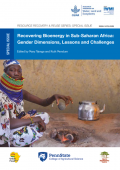
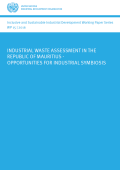
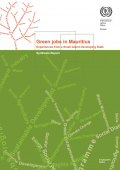
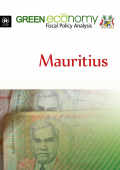
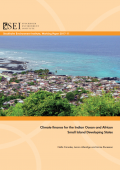
The report Climate Finance for the Indian Ocean and African Small Island Developing States analyses concessional international public flows of climate finance to Indian Ocean and African Small Island Developing States for the six years 2010–2015.
The authors examine the sources of climate finance, its distribution among recipient countries, the shares targeting adaptation and mitigation, the spread across sectors, the modes of delivery and intermediaries involved in programming the funds, as well as the share of committed funds that has been disbursed so far. For each country analysed – Cape Verde, the Comoros, Guinea-Bissau, the Maldives, Mauritius, São Tomé and Principe, and the Seychelles – detailed snapshots of climate finance are provided.
